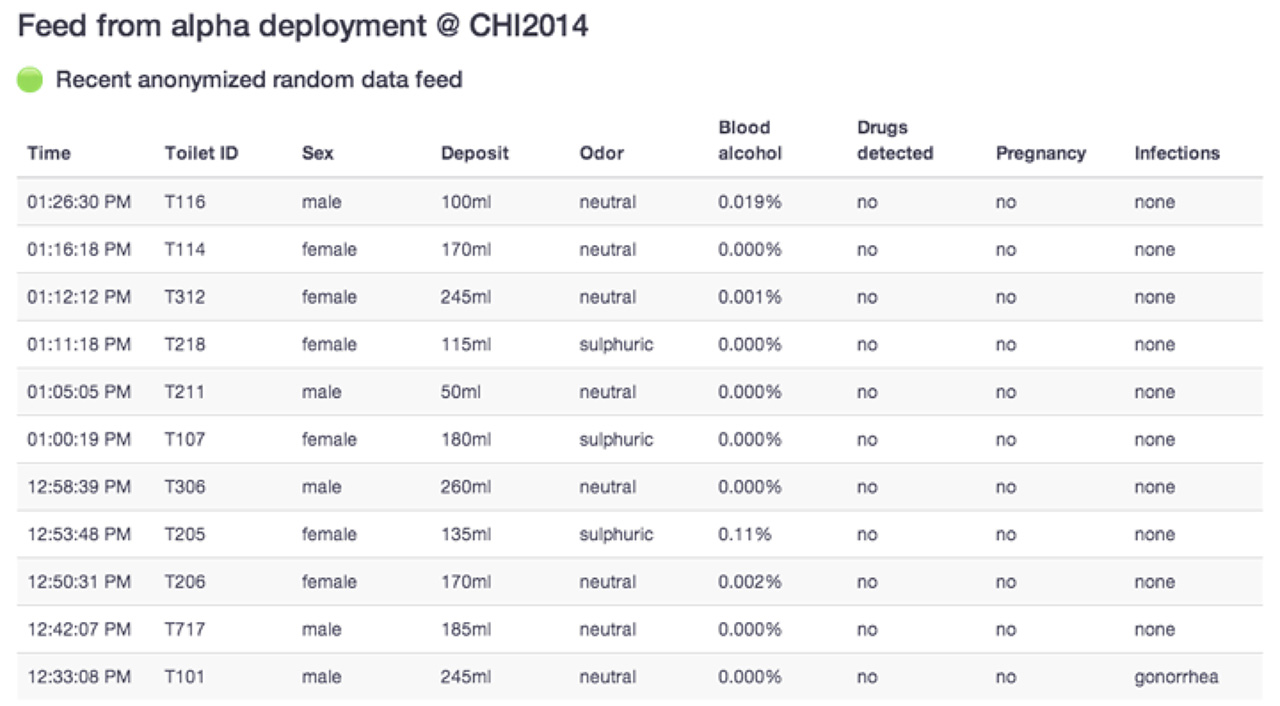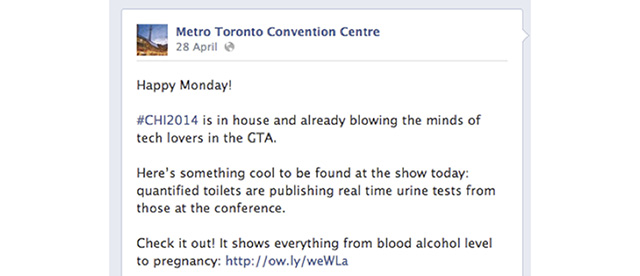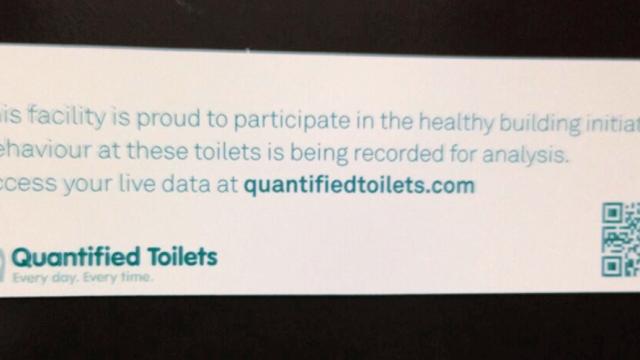Attendees at a Human-Computer Interaction conference in Toronto earlier this week found toilets that claimed to analyse each “deposit” and post it online. Don’t like that idea? Then go somewhere else.
Quantified Toilets was perpetuated by folks at the Critical Making Hackathon, but it wasn’t really an example of critical making — it was critical faking. The intervention appropriated the language, look, and logic of a start-up (they agonised over the logo, font and how to craft the marketing text) in order to present people with a faecal fait accompli, like a change in Facebook’s terms of service. Deal with it or leave. Except this one struck a chord.
The Quantified Toilets website showed an updating feed:

Some people recognised the hoax from the “odour” column or other signs in the data and site registration, but the fact is that this kind of analysis already exists in products like Toto’s Intelligence Toilet, which monitors “weight, BMI, blood pressure and blood sugar levels”. Jen Golbeck wrote a great overview of the surveillance issues the project raises, including a study that concluded 70 per cent of people would share toilet data for healthcare savings.
But Quantified Toilets is about more than the limits of surveillance; it raises questions about our ability to set limits at all, when technology feels as necessary as a bathroom. The reaction at the conference and online was overwhelmingly one of acceptance, starting with the Facebook page for the Convention Centre:

Twitter was ablaze with resignation, from “This is the future” to the impressively cynical, “The site’s a spoof — but it’s still the future.” The only outrage came from attendees angry with the hoax — the signs were removed from the bathrooms by conference organisers — who were concerned that other cultures might be “offended by the toilet humour,” according to co-chair Matt Jones.
“I was much more prepared for outrage,” said hackathon participant Josh Tanenbaum. Instead, they heard from a company who wanted to visualise their data, and people who wanted one in their home. Quantified Toilets was an answer to the question, “Is there any area left where provoking people is still possible?” It was designed to upset and it didn’t, really, explained Lisa Koeman, another participant.
Quantified Toilets made a point about the limits of privacy, but while opting out of a bathroom doesn’t take away your ability to shit, we have no natural capacity for emailing or searching the web. Technologies are complex, social, and expensive, so near monopolies, like Google, exclude the possibility of real choices. Mathias Döpfner, CEO of Axel Springer, put it well earlier this week when he wrote:
On the one hand, Axel Springer is part of a European antitrust action against Google, on the other hand, Axel Springer benefits from the traffic it receives via Google… You can call it schizophrenic — or liberal. Or, to use one of our Federal Chancellor’s favourite phrases: there is no alternative.
Picture: @Nicola_Marsden
